B-21 Raider Flight Testing Now Underway
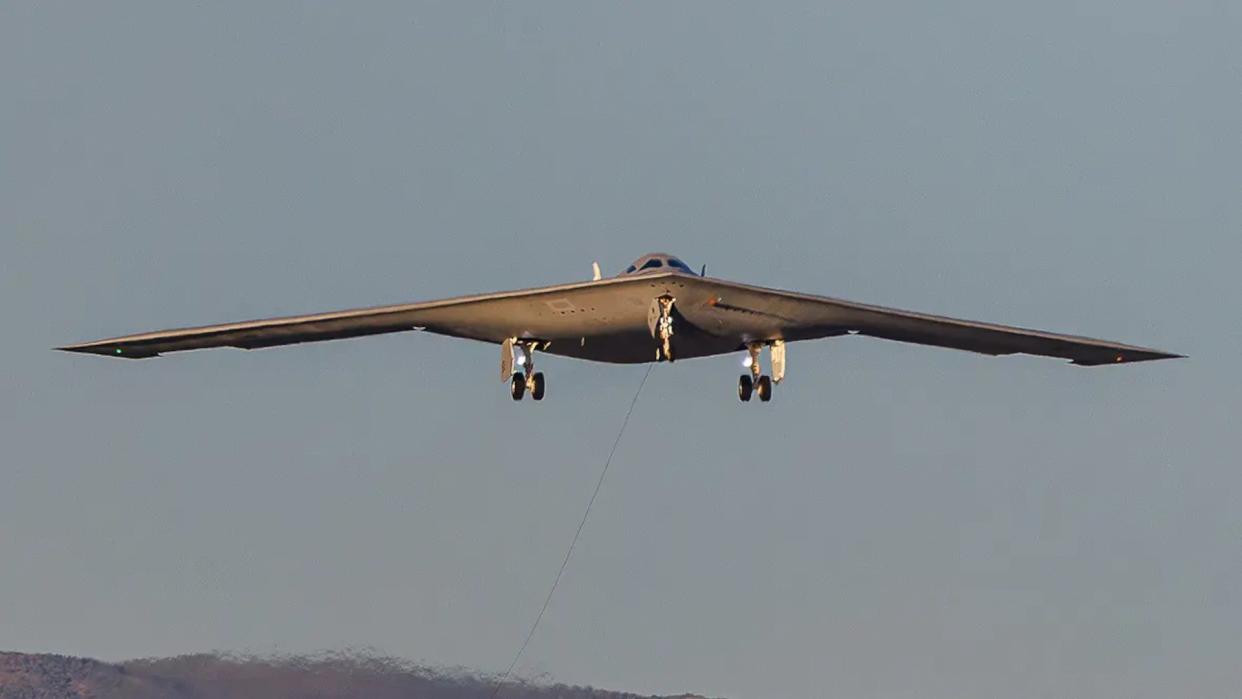
The U.S. Air Force's first B-21 Raider stealth bomber is now conducting test flights from Edwards Air Force Base in California. This marks an important step forward in the development of this highly advanced aircraft, which just flew for the first time last November.
An Air Force official confirmed to The War Zone that the initial B-21, one of six pre-production examples the service plans to acquire, flew a sortie from Edwards today. That same individual said that this was not the aircraft's first flight from that base, but declined to say when that milestone was reached or how many times it has flown in total. The bomber, which is nicknamed Cerberus, first arrived at Edwards at the conclusion its maiden flight from Northrop Grumman's facilities at the Air Force's Plant 42 in Palmdale, California on November 10, 2023.
The USAF, and Edwards AFB in particular, have been very tight lipped about any B-21 activities, including the aircraft's arrival there that went without any public fanfare.
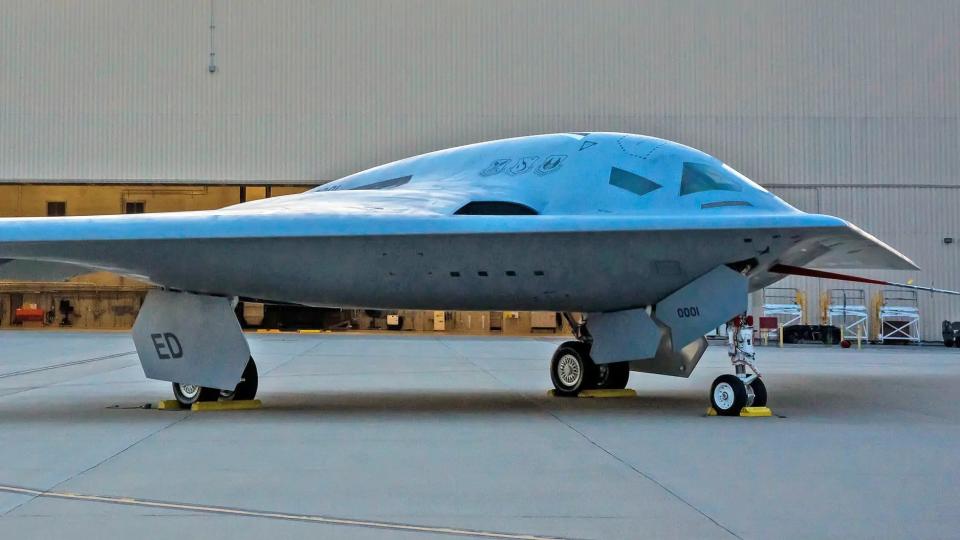
"Flight testing is a critical step in the test campaign managed by the Air Force Test Center and 412th Test Wing’s B-21 Combined Test Force to provide survivable, long-range, penetrating strike capabilities to deter aggression and strategic attacks against the United States, allies, and partners," the Air Force official also told The War Zone.
There had already been signs on online flight tracking websites that a B-21 flight from Edwards might be occurring today. A C-12 Huron twin-engine turboprop belonging to the 412th Test Wing and using the callsign Raider 13, which could have been acting as a chase plane, was tracked flying loose orbits north of the base. At the same time, it was also flying at lower attitudes and slower speeds that would pair with initial flight testing envelopes of an aircraft like the B-21. Plane spotters have noted that Raider callsigns has also been used by aircraft conducting more routine training out of Edwards in the past, too.
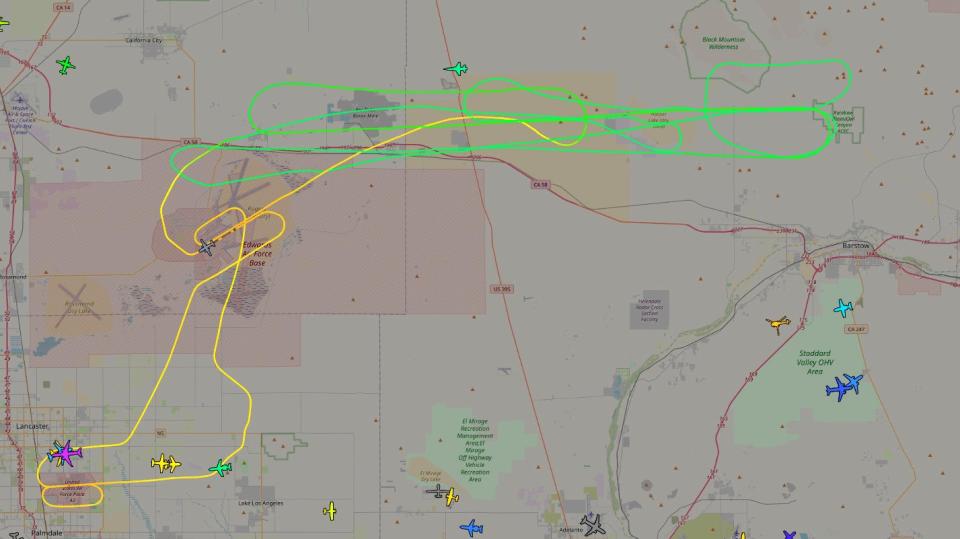
Long before the first B-21 was completed, the plan was to conduct initial flight testing at Edwards. The 420th Flight Test Squadron was officially reactivated in 2019 to become the centerpiece of the B-21 Combined Test Force. The 420th had previously served as the main component of the Combined Test Force for the B-2 Spirit stealth bomber, the B-21's predecessor.
"I had the opportunity to fly the B-52 – the oldest bomber in our inventory, one of the oldest aircraft in our inventory," Air Force Lt. Col. Clifton Bell, commander of the 420th, told The War Zone and other outlets at Plant 42 ahead of the Raider's public rollout back in December 2022. "And then I flew the B-2, which we have behind us here, an exceptional airplane. And then having the opportunity to bring forward the next generation of bomber is a very exciting opportunity."
You can read more about what Bell, as well as Air Force Lt. Col. Joshua “Crash” Schneider, the deputy B-21 program manager, and Northrop Grumman test pilot Chris Moss, said at that time about the planned test program at Edwards here.
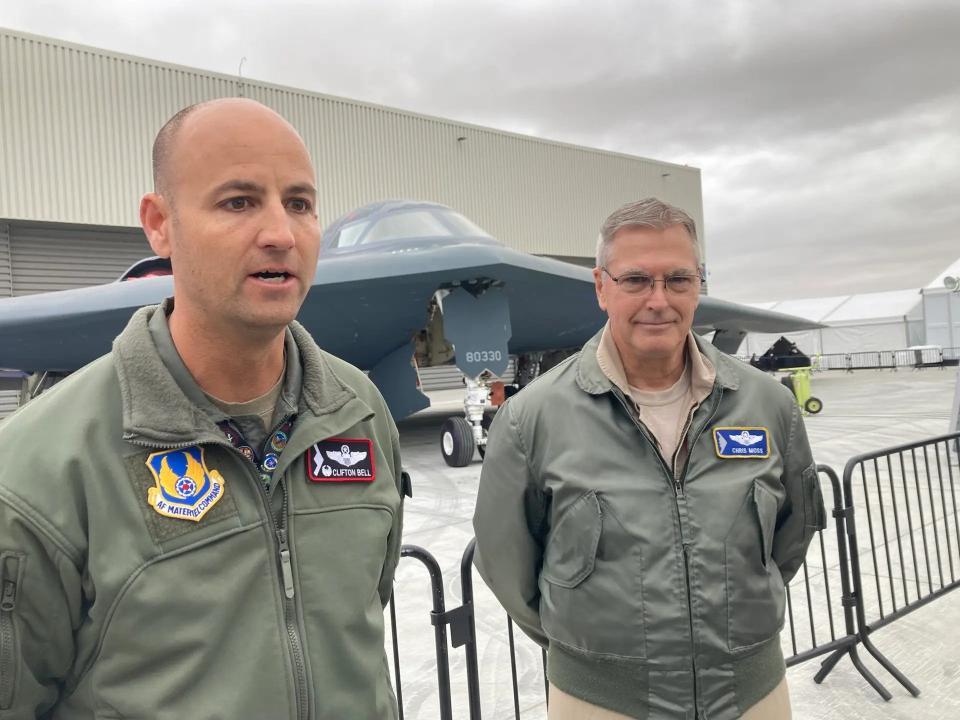
Edwards has also received significant physical upgrades in recent years to support the arrival of the B-21 test program. Though there is only one Raider there now, all six pre-production jets are expected to eventually touch down at the base.
Though the date of its first flight was pushed back multiple times, work on the B-21 program has been moving at a brisk pace, in general, in the past year or so. The systems inside the initial example of the Raider were powered on for the first time in July 2023, followed by engine test runs in September and taxi testing in October. This all then culminated in the first flight in November.
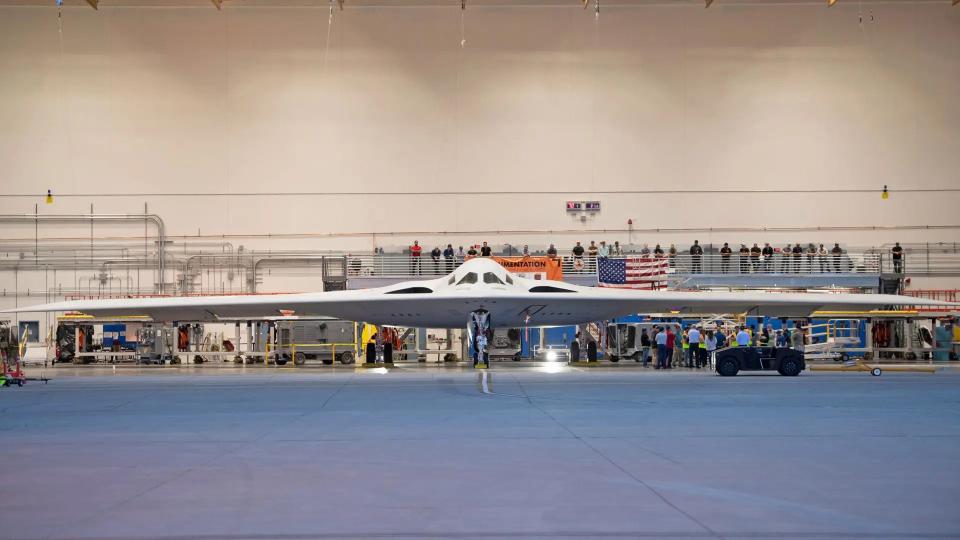
The Air Force currently expects the B-21 to enter service in the latter half of this decade. The Raider is slated to replace the service's B-1B and B-2 bombers. Ellsworth Air Force Base in South Dakota, currently home to B-1Bs, is expected to host the first operational squadron of Raiders. Whiteman Air Force Base in Missouri, where the the Air Force's operational B-2s are presently based, and Dyess Air Force Base in Texas, another B-1B base, are also set to receive Raider squadrons in the future.
The B-21 is set to be a central component of the U.S. military's nuclear deterrent triad for the foreseeable future, as well as providing key conventional long-range strike capabilities. In addition to its function as a bomber, American officials have touted its extensive intelligence gathering and battle management capabilities. The War Zone has explored in detail in the past how the aircraft will really be a highly capable multi-purpose platform. It is also just one component of a larger family of systems, most of which remain in the shadows, that will be very valuable for performing various missions in the future, including any potential high-end conflict against China in Pacific.
Before any of this can happen, though, testing of the B-21 out of Edwards will need to be completed. That work to get the Raider ready for operational service is now underway.
Contact the author: [email protected]